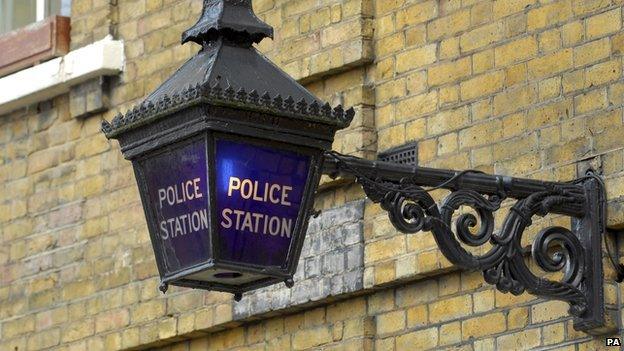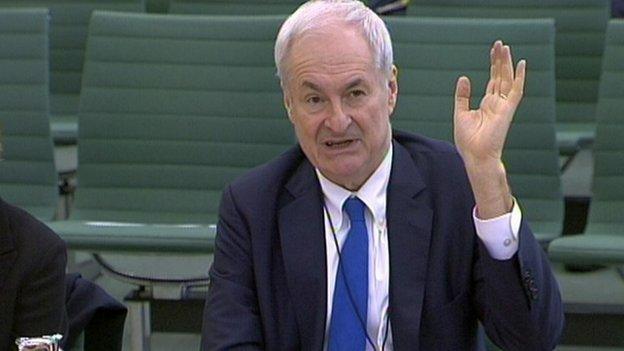Police bail time limit announced by home secretary
- Published

There would be a "new presumption" to release without bail at all, Theresa May said
Time limits on police bail in England and Wales have been announced by Home Secretary Theresa May.
Under the plans, a senior police officer would have to authorise police bail for longer than 28 days and a magistrate for more than three months.
There is currently no time limit and no need for police to seek approval to get bail extended before charge.
The plan to reform the law on police bail would have to be taken forward in the next Parliament, Mrs May said.
She said it was "simply not acceptable" that pre-charge bail could last "months or years".
The Association of Chief Police Officers (Acpo) said the bail system needed to be "efficient and proportionate".
Earlier this month, broadcaster Paul Gambaccini backed a limit on the use of police bail.
He told MPs how officers and prosecutors "sat" on him for 12 months before telling him he would not be charged in relation to an allegation of historical sex abuse.
It had previously been proposed that police would have to gain approval from a court for a bail extension after 28 days.
But the Home Office said under the new plans extensions could be approved by a superintendent at 28 days, although this would only be allowed up to a total of three months in exceptional circumstances.
Mrs May said alongside the measures would be a "new presumption" to release without bail at all, which she said would drive down the "inappropriate use" of pre-charge bail and ensure that suspects were released under bail conditions "only where it is necessary or proportionate".
Other plans for the production of guidance and the collection of data on the use of police bail did not need legislation and could be progressed straight away, she said.
An Acpo spokesman said: "Pre-charge bail is an essential tool in securing justice. The police have been clear that we want and need a bail system that is efficient and proportionate, both for victims and those suspected of committing crimes.
"Each and every investigation follows a different path. Less than 2% of arrests result in a person being on bail for more than six months. However, in an increasingly globalised and digitised world some cases are complex... and cannot be rushed."
- Published3 March 2015
